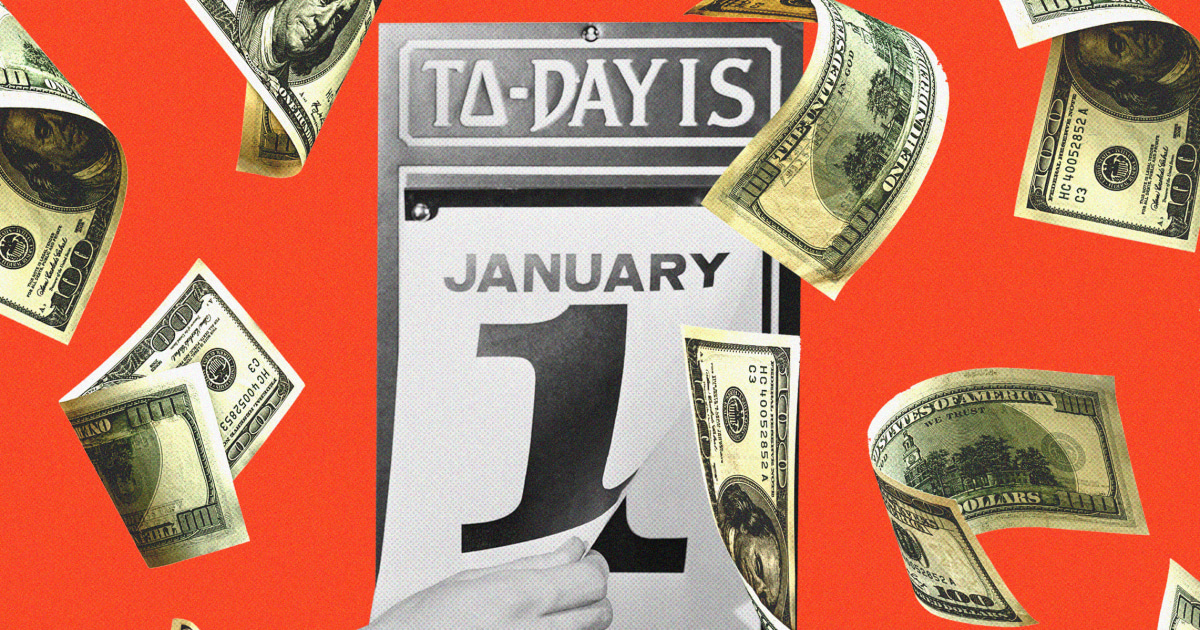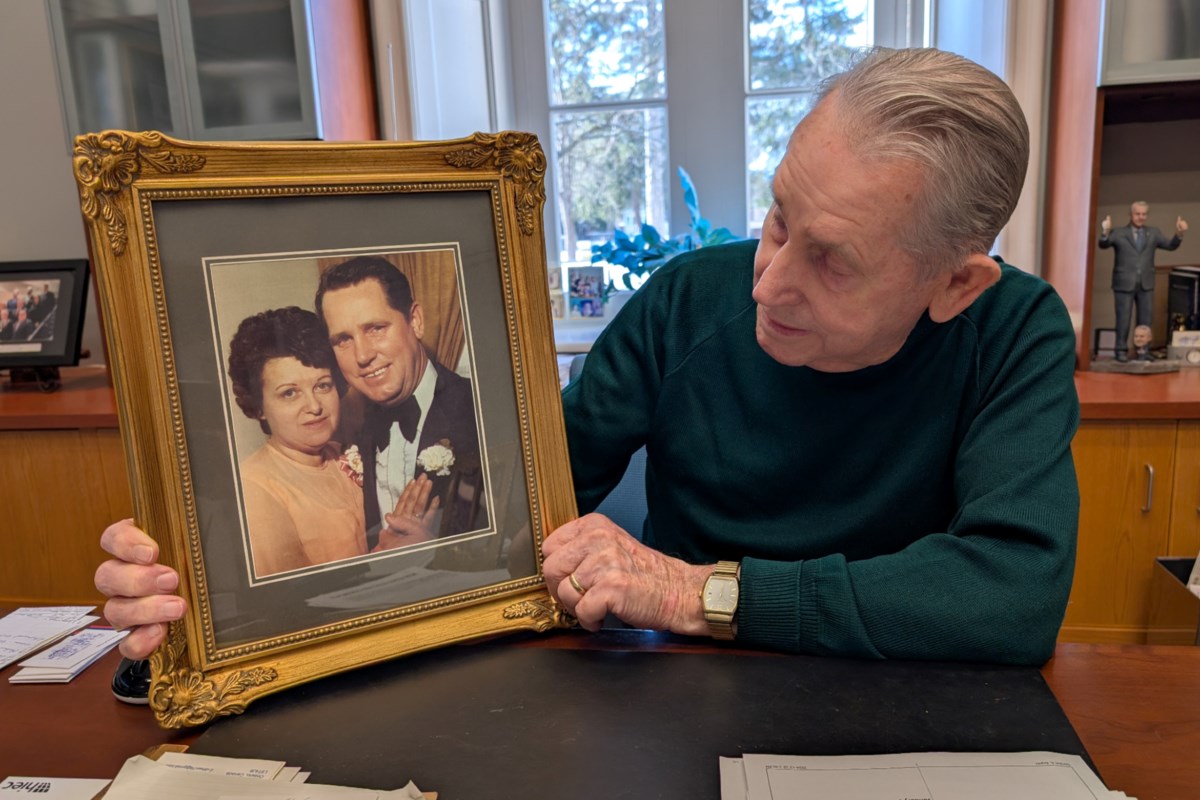Best Personal Finance Books to Read in 2025
Affiliate links for the products on this page are from partners that compensate us and terms apply to offers listed (see our advertiser disclosure with our list of partners for more details). However, our opinions are our own. See how we rate products and services to help you make smart decisions with your money.
Introduction to the Best Personal Finance Books of 2025
- “Get Good with Money” by Tiffany “The Budgetnista” Aliche
- “Retire Before Mom & Dad” by Rob Berger
- “How I Invest My Money” by Joshua Brown and Brian Portnoy
- “The Simple Path to Wealth” by JL Collins
- “Financial Feminist: Overcoming the Patriarchy’s Bullsh*t to Master Your Money and Build a Life You Love” by Tori Dunlap
- “Deeper Than Money: Ditch Money Shame, Build Wealth, and Feel Confident AF” by Chloe Elise
- “The Financial Diet: A Total Beginner’s Guide to Getting Good with Money” by Chelsea Fagan and Lauren Ver Hage
- “Cultura and Cash: Lessons from the First Gen Mentor for Managing Finances and Cultural Expectations” by Giovanna González
- “Finance for the People: Getting a Grip on Your Finances” by Paco de Leon
- “Broke Millennial Takes On Investing” by Erin Lowry
- “The Money Manual: A Practical Money Guide to Help You Succeed on Your Financial Journey” by Tonya B. Rapley
- “The Poverty Paradox: Understanding Economic Hardship Amid American Prosperity” by Mark Robert Rank
- “Cashing Out: Win the Wealth Game by Walking Away” by Julien and Kiersten Saunders
- “I Will Teach You to be Rich” by Ramit Sethi
- “Spend Well, Live Rich” by Michelle Singletary
- “Clever Girl Finance: Learn How Investing Works, Grow Your Money” by Bola Sokunbi
- “The Millionaire Next Door” by Thomas J. Stanley
- “When She Makes More” by Farnoosh Torabi
Diving into a book can be a great way to learn more about personal finance. Business Insider’s personal finance team put together a list of 18 of the top personal finance books for 2025.
Our top picks cover a wide range of money topics. So whether you want to retire early, invest in the stock market, start conversations about money with your family, or just see money from a different point of view, we have options for you to discover.
Our list of must-read personal finance books includes our personal favorites and some with truly impressive Amazon reviews and ratings.
‘Get Good With Money: Ten Simple Steps To Becoming Financially Whole,’ by Tiffany ‘The Budgetnista’ Aliche
Tiffany Aliche, aka The Budgetnista, shares her own triumph over debt and financial hardships. “Get Good With Money” also includes worksheets to help you assess your financial wellness without shame or judgment. This book also covers a wide range of personal topics like how to build an emergency fund from how to improve your credit score.
Best for:
- People who want to pay off debt
- People who like worksheets
- Young professionals
‘Retire Before Mom and Dad,’ by Rob Berger
For anyone considering early retirement through the FIRE (Financially Independent, Retire Early) movement, this book is a quintessential primer on the principles of getting started on this path. But, it also looks at principles that make financial independence and retirement attainable, even if retiring early isn’t on your list.
Best for:
- People who want to retire early
- People who want to build wealth
‘How I Invest My Money,’ by Joshua Brown and Brian Portnoy
If you’ve ever wondered how your financial advisor, a venture capitalist, or that money expert on the internet invests their money, Brian Portnoy and Joshua Brown have answers.
With pithy stories from 25 financial experts, this book advances on basic personal finance topics, giving readers ideas to implement as they take the next steps on their financial journeys.
It’s not the best choice for anyone who’s new to managing money, as it lacks enough explanation of the basics to be a stand-alone guide. But for readers who are ready to make new financial moves, this book will prove helpful.
Best for:
- Strategies for how to save money, and build wealth
- People who are looking for inspiration to take the next step with their money
The Simple Path to Wealth: Your Road Map to Financial Independence and a Rich, Free Life,’ by JL Collins
The principles of “The Simple Path to Wealth” were first laid out in a series of letters by the author to his daughter, and there’s no shortage of accessible and actionable advice on investing throughout the book.
It takes on a light and casual tone in some chapters but doesn’t shy away from explanations of more complicated topics, either, like the nuances of investing in a bear or bull market. It’s the highest-rated personal finance book on the list, with over 3,800 Amazon reviews and an average rating of 4.8 stars.
Best for:
- Investors
- People who want to retire early
‘Financial Feminist: Overcoming the Patriarchy’s Bullsh*t to Master Your Money and Build a Life You Love,’ by Tori Dunlap
In “Financial Feminist,” entrepreneur and author Tori Dunlap teaches women how to advocate for their worth and channel their emotions to make smart money decisions. Dunlap offers a financial game plan that helps you build a career you love.
Best for:
- Socially conscious millennial women
- Young professionals
‘Deeper Than Money: Ditch Money Shame, Build Wealth, and Feel Confident AF’ by Chloe Elise
In “‘Deeper Than Money” Chloe Elise offers an approachable, insightful perspective on personal finance. Elise takes into account that everyone’s situation is unique. It’s important to build your own relationship with money rather than following set rules and guidelines. Elise shares moments from her own journey to show readers how they can adjust their mindset.
Best for:
- Changing your money mindset and building confidence around money management
- Young professionals
- Millennial women
‘The Financial Diet: A Total Beginner’s Guide to Getting Good with Money,’ by Chelsea Fagan and Lauren Ver Hage
A great book for beginners, “The Financial Diet” lays a groundwork for anyone wanting to learn more about money and life. Best for young adults, Fagan dives into starting to invest and saving for retirement, as well as budgeting and debt repayment plans. The advice here is no-frills and easy to put into practice.
Best for:
- Young professionals
- Budgeters
- Personal finance beginners
‘Cultura and Cash: Lessons from the First Gen Mentor for Managing Finances and Cultural Expectations’ by Giovanna González
Giovanna González acknowledges that cultural expectations and first-generation experiences can impact a person’s money management in “Cultura and Cash.” Latinx and first-generation readers can relate to a lot of the experiences González writes about — something you won’t see in other personal finance books.
Ultimately, this book does a great job of teaching you how to embrace the best of two different cultural systems— the individualist nature of the U.S. and the family-oriented view of Latinx cultures — so you can learn how to manage your money.
- Women of color
- Latinx learning about personal finance
- First gen in the U.S.
‘Finance for the People,’ by Paco de Leon
In “Finance for the People,” former financial planner Paco de Leon explains how to take personal responsibility for our personal finances despite inequities out of our control, while providing the necessary tools to help you build a strong financial foundation.
Best for:
- Visual learners
- Socially conscious millennials and Gen Zers
- Holistic financial wellness advice
‘Broke Millennial Takes On Investing: A Beginner’s Guide To Leveling Up Your Money,’ by Erin Lowry
“Broke Millennial” took the world by storm with great budgeting tips written specifically for avocado-toast-brunching millennials. Erin Lowry is back at it again with a practical, easy-to-read guide to investing. Packed with tips for beginners, “Broke Millennial Takes On Investing” will teach you how to navigate the market in alignment with your beliefs and values.
Best for:
- Socially conscious investors
- Young professionals
‘The Money Manual’ by Tonya B. Rapley
“The Money Manual” is a guidebook to the basics of managing money, from saving to building credit. Written by the blogger behind Myfabfinance.com, this book is both engaging and approachable, with money lessons that are applicable no matter how much you’re earning.
This book is more interactive than most, with sections of questions and space for writing. The book starts with a simple money check-in, and from the beginning gives actionable advice that can help you understand where you are and where you want to go.
Best for:
- Young adults and millennials
- Re-learning the basics of budgeting and saving
- Hands-on learners
‘The Poverty Paradox: Understanding Economic Hardship Amid American Prosperity’ by Mark Robert Rank
“The Poverty Paradox” is technically a social science book. Still, it’s a great book to read if you’re learning about personal finance because it helps you realize how systems in the U.S. can create wealth inequality.
This may help you shift your money mindset because you’ll gain a better understanding of how external factors contribute to poverty. Rank is an expert in this area, and shares research in the book to support each of his points.
Best for:
‘Cashing Out: Win the Wealth Game by Walking Away,’ by Julien and Kiersten Saunders
Early retirees Julien and Kiersten Saunders, founders of the award-winning blog rich®ULAR, outline the exact 15-year plan they used to retire in their 40s. “Cashing Out” walks readers through the process of building a lasting wealth-building plan without sacrificing too many small pleasures that keep you going.
Best for:
- People who want to retire early
- Anyone experiencing burnout in a high-stress job
- First-time investors
‘I Will Teach You To Be Rich,’ by Ramit Sethi
Personal finance author Ramit Sethi outlines a six-week plan for living out your “rich life” as you define it. “I Will Teach You to be Rich” by Ramit Sethi walks readers through how to use credit cards and maximize rewards, opening a high-yield savings account to earn interest, and even automating accounts to save with no effort every month. This easy-to-read and highly actionable book goes from reading to returns quickly.
Best for:
- Making a plan
- Strategizing with your money
- Setting up systems to build wealth
‘Spend Well, Live Rich: How to Get What You Want with the Money You Have,’ by Michelle Singletary
Author Michelle Singletary reflects on her life with her grandmother, who raised five children (including the author) on a modest salary. Singletary looks into the principles that her grandmother used with her own finances to make the most of what she had. It’s best for anyone wanting inspiration on making the most of the money they already have.
Best for:
- Budgeters
- Personal finance beginners
- Inspiration
‘Clever Girl Finance,’ by Bola Sokunbi
This easy-to-read guide to money doesn’t make assumptions — it starts with the very basics of building wealth and builds on them. This book roots its lessons in reality with real-life anecdotes, including from the author herself.
It doesn’t require any prior knowledge, either. It covers the basics of organizing money and how to budget, then explains the credit system, debt, investing, and even asking for a raise.
It’s an excellent choice for anyone who is just getting started with personal finance, or simply wants a refresher on the basics.
Best for:
- Young adults and millennials
- Anyone searching for a crash course on managing money and building wealth
‘The Millionaire Next Door,’ by Thomas J. Stanley
Thomas J. Stanley’s profile of America’s wealthy citizens finds that they’re more similar than they are different, and they’re not all the people you’d expect. Stanley looks at millionaires and finds seven habits that they have in common, including living below their means and rejecting traditional consumerism. Stanley’s insights have earned this book over 5,300 five-star reviews.
Best for:
‘When She Makes More,’ by Farnoosh Torabi
“When She Makes More” author and personal finance expert Farnoosh Torabi explores a reality she lives with every day: being a breadwinner and a woman in a different-sex relationship. She looks at the realities and the rules she’s made with her partner, and discusses ways to maximize earnings and minimize conflict.
Best for:
- Starting a conversation about money
The Importance of Personal Finance Literacy
If you’re just starting your financial journey or struggling with certain aspects of managing your money, a personal finance book can be a great way to learn about financial concepts in greater detail.
For example, the best books on investing can help you learn the difference between a Roth IRA and Traditional IRA, as well as how to invest in the stock market.
Personal finance books for budgeting can teach you different budgeting strategies like the pay-yourself-first method or the 50/30/20 rule so you can learn to manage spending and save money over time.
Some personal finance books also cater to specific audiences. For instance, there are several books that include personal experiences the writer has faced, and how they’ve overcome these issues. Personal finance books for people of color often acknowledge systemic barriers people of color face and include nuances in culture when framing money strategies.
Benefits of Reading Personal Finance Books
The main benefit of reading personal finance books is that you can learn about different approaches to money management.
While there are similar jargon and fundamental concepts that you’ll find across many personal finance books, you’ll also find that many experts share different opinions, experiences, and strategies regarding money concepts. You get to take these nuggets of wisdom and shape your own ideas to cultivate a system that works for you and helps you achieve your savings goals.
Want to Read More? Try These:
Not every book we wanted to mention made the top 18. Here are a few more good choices to continue your reading:
- “The Intelligent Investor,” by Benjamin Graham
- “Girl, Get Your Credit Straight!,” by Glinda Bridgforth
- “Financially Fearless: The LearnVest Program for Taking Control of Your Money,” by Alexa Von Tobel
- “Millionaire Teacher: The Nine Rules of Wealth You Should Have Learned in School,” by Andrew Hallam
- “The Automatic Millionaire,” by David Bach
- “You Are a Badass at Making Money,” by Jen Sincero
- “Your Money or Your Life,” by Vicki Robin
- “Get a Financial Life: Personal Finance in Your Twenties and Thirties” by Beth Kobliner
Why You Should Trust Us: How We Reviewed the Best Personal Finance Books
We chose the best personal finance books after reading over 25 personal finance books and choosing our favorites.
Business Insider’s personal finance team is editorially independent, meaning that the business team doesn’t tell the team’s writers and editors what to write. You can learn more about how we review products through our editorial standards page.
Personal Finance Books FAQs
Our must-read personal books for beginners are “The Financial Diet” by Chelsea Fagan and Lauren Ver Hage, “Finance for the People” by Paco de Leon, “The Poverty Paradox” by Mark Robert Rank, and “I Will Teach You to be Rich” by Ramit Sethi.
Some of the best personal finance books for investing include “How I Invest My Money” by Joshua Brown and Brian Portnoy, “The Simple Path to Wealth” by JL Collins, “Broke Millennial Takes On Investing” by Erin Lowry, and “The Millionaire Next Door” by Thomas J. Stanley.
Yes, there are personal finance books specifically for women. The best personal finance books for women include “Financial Feminist” by Tori Dunlap, “Deeper Than Money” by Chloe Elise, “Cultura and Cash” by Giovanna González, and “When She Makes More” by Farnoosh Torabi.
“Retire Before Mom and Dad” by Rob Berger talks about the FIRE movement. “Cashing Out” by Julien and Kiersten Saunders is another option people can read if they want to retire early.
For budgeting tips, you should read “The Money Manual” by Tonya B. Ripley, “Spend Well, Live Rich” by Michelle Singletary, and “Clever Girl Finance” by Bola Sokunbi.
Yes, there are personal finance books with tips and strategies for paying off debt. Our top reads for people who want to pay off debt are “Get Good With Money” by Tiffany Aliche, “The Financial Diet” by Chelsea Fagan and Lauren Ver Hage, and “Deeper Than Money” by Chloe Elise.
link






